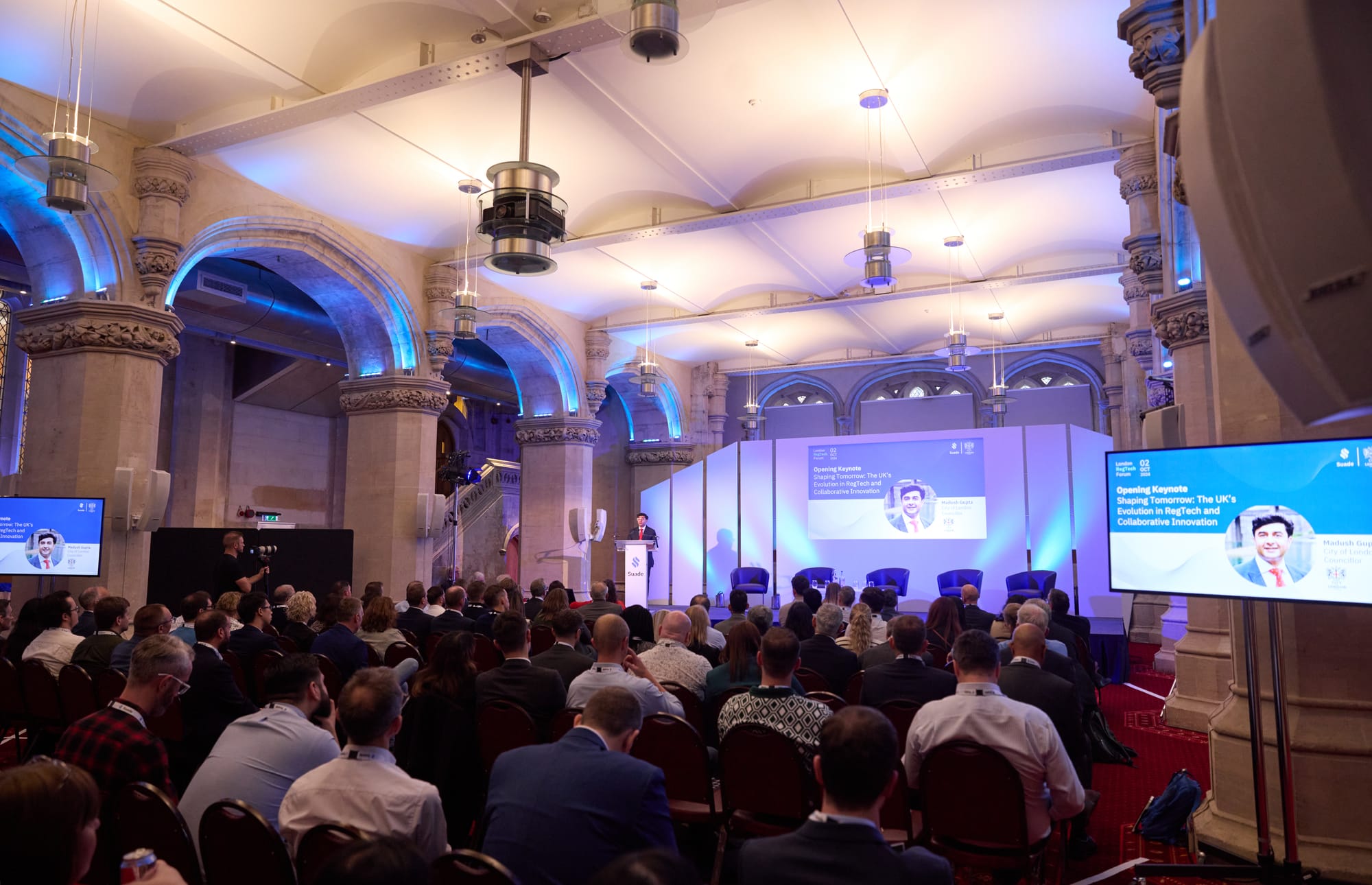
Suade's London RegTech Forum drives industry collaboration on the future of financial regulation
Held at the historic Guildhall in partnership with the City of London Corporation, the event provided a platform for Heads of Regulatory Reporting, CFOs, and senior executives from leading financial institutions, as well as regulators and other influential figures from across the finance industry to explore the latest trends and challenges shaping the transformative regulatory technology landscape.
The forum addressed significant issues facing the financial industry, beginning with a keynote address by Madush Gupta, City of London Councillor and Policy Lead – Innovation and Technology at the City of London Corporation. He shared his insights into the UK’s evolving regulatory environment and congratulated Suade on its 10-year anniversary, commending the firm as a staple of the City of London and an example of success. His remarks set the context for the discussions that followed, highlighting the regulatory challenges and opportunities ahead.
In light of the PRA’s recent release of the near-final version of Basel 3.1 Part 2, a key discussion focused on the practical implications of these regulatory developments. Industry experts tackled the complexities arising from Basel 3.1 and the PRA's evolving supervisory approach. The updates signify a substantial overhaul in how banks calculate risk-weighted assets (RWAs), promoting a more consistent and robust approach to measuring credit risk. This shift necessitates more stringent capital and risk management practices for financial institutions.
Participants emphasised the critical importance of high-quality data for effective modelling and addressed challenges posed by varying regulatory frameworks across jurisdictions, which complicate compliance efforts. The panel examined the choice between the Internal Ratings-Based (IRB) approach and the standardised method, noting the PRA's encouragement of model use while stressing the need for accurate calibration and ongoing reliability. They discussed how RegTech solutions can help institutions adapt to these challenges, providing valuable insights into the potential for technology to enhance compliance in a complex regulatory environment.
Recognising the vital role of data in regulatory compliance, a later panel on data standardisation highlighted the urgent need for unified data formats to enhance efficiency and transparency across the financial sector. Participants addressed the challenges posed by inconsistent reporting requirements across jurisdictions. They also identified the European Central Bank's Integrated Reporting Framework as a key initiative for harmonised reporting. The discussions reinforced the potential for RegTech solutions to streamline data integration and improve regulatory resilience.
A discussion on RegTech adoption examined the barriers and enablers influencing the widespread use of regulatory technology. Key challenges mentioned included long procurement cycles and the perception of regulation as primarily a compliance exercise. However, regulatory pushes and increasing collaboration between governments and regulators were highlighted as significant drivers for adoption. The panel emphasised the future potential of RegTech, including the integration of technologies like generative AI and blockchain, to support outcome-based regulation.
Looking to the future, the forum examined the transformative potential of AI in finance, while also acknowledging the crucial need for ethical considerations and robust data regulation. The growing importance of sustainable finance was also a key focus, with a dedicated panel discussing the integration of climate-related risks into financial decision-making and how RegTech can support these critical initiatives.
In reflecting on the forum, Diana Paredes remarked,
“The London RegTech Forum was a resounding success, demonstrating the power of collaboration in driving the future of financial regulation. By bringing together leading voices from across the industry, we fostered critical conversations and sparked innovative solutions to the challenges facing financial institutions today”.
By bringing together diverse perspectives and fostering critical conversations, Suade's London RegTech Forum served as a powerful catalyst for collaboration and innovation in the face of evolving regulatory challenges. The event underscored the importance of a unified approach to navigating the complexities of the financial landscape and ensuring a robust and sustainable future for the industry.
The event concluded with remarks from Lyndon Nelson, former Deputy CEO of the Bank of England and Senior Advisor at Suade, who highlighted the increasing role of technology in financial supervision. His closing statement reinforced the importance of collaboration in addressing regulatory challenges.